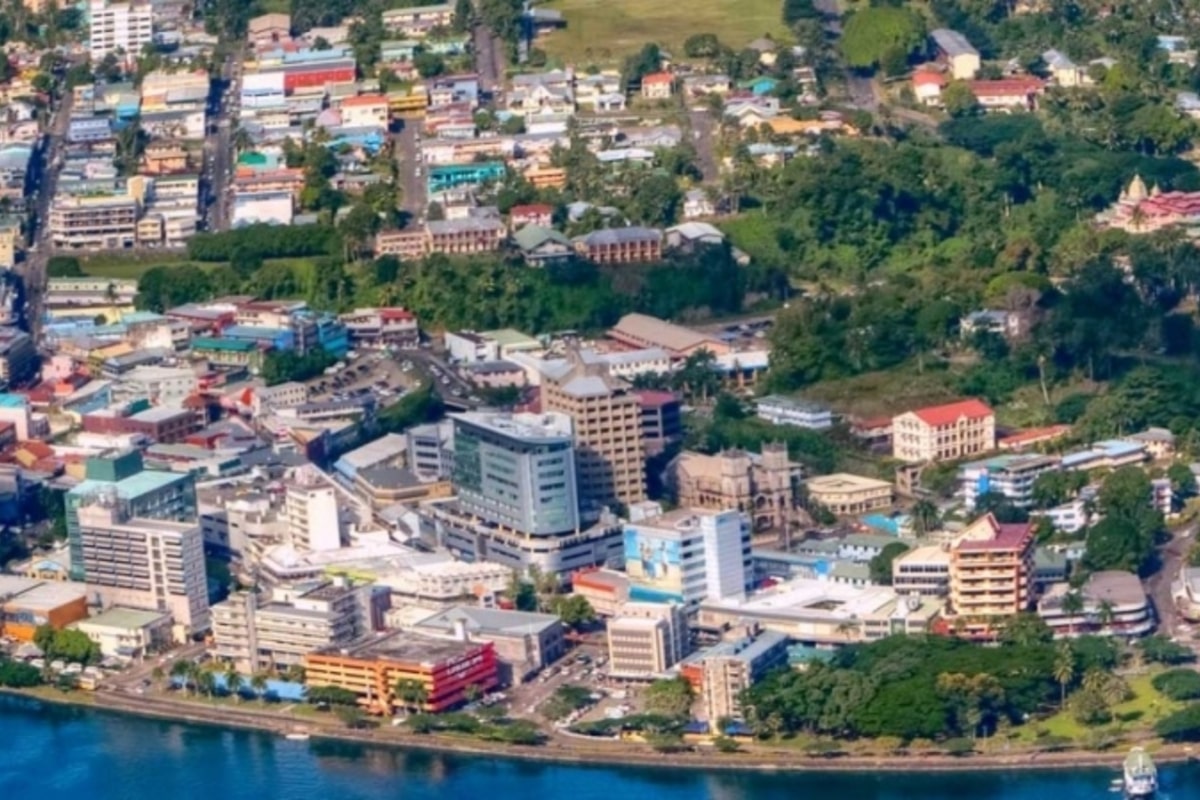The capital of Fiji, Suva, holds many fascinating facts you might not know. It is not only the political and economic center of the country but also a place where tropical nature blends harmoniously with colonial architecture and modern urban life. The city impresses with its unique atmosphere, rich cultural heritage, and picturesque landscapes. Here, traditions, religions, and nationalities coexist peacefully on the shores of the South Pacific Ocean. Below are some interesting facts about Suva that will reveal this city from a completely new perspective.
- Suva is one of the smallest capitals in the world by population, yet it remains the largest city in Fiji. Around 100,000 people live in the city itself, but the population significantly increases when including the surrounding suburbs due to urban agglomeration. Despite its compact size, Suva serves as the main business and cultural hub of the country.
- Suva became the capital of Fiji only in 1877, replacing the former capital Levuka on the island of Ovalau. The relocation was due to Levuka’s limited space, which hindered further development. Suva offered more land for expansion and a strategically advantageous location on the island of Viti Levu.
- Suva is home to the largest university in the South Pacific region — the University of the South Pacific. This educational institution brings together students from various island nations and plays a vital role in regional education. The campus is surrounded by lush tropical greenery, creating a unique learning environment.
- Suva is known for its heavy rainfall, making it one of the wettest cities in the world. Annual precipitation often exceeds 3,000 millimeters, with rain falling almost daily. This climate fosters abundant greenery, with numerous parks and botanical gardens throughout the city.
- One of Suva’s main attractions is the Fiji Museum, which houses a rich collection of artifacts spanning over 3,000 years of history. Visitors can admire traditional canoes, weapons, jewelry, and everyday items of the indigenous people. The museum also offers insights into Fiji’s colonial past.
- Located in the city center, Albert Park has an interesting history. In 1928, famous English aviator Amelia Earhart landed here during her around-the-world flight. Today, the park remains a popular spot for both locals and tourists to relax.
- Suva is a key port city, with one of the deepest harbors in the South Pacific. This allows it to accommodate cargo ships as well as luxury cruise liners. The port plays a strategic role in trade and logistics across the region.
- The city is considered the culinary capital of Fiji due to its diverse cuisine, which blends Indian, Chinese, and local traditions. Markets and street cafes offer exotic seafood, curries, and dishes with Polynesian roots. It is a true paradise for food lovers seeking new tastes.
- Suva’s architecture is a striking example of colonial style, harmoniously mixed with modern buildings. The city preserves historic government structures, churches, and mansions that reflect its British heritage. Walking through the central streets allows visitors to experience this distinctive atmosphere.
- The city boasts a vibrant artistic scene, supported by numerous galleries and cultural centers. Local artists often draw inspiration from nature, traditions, and Fijian mythology. Annual festivals showcase traditional dance, music, and crafts of the indigenous communities.
- Suva’s Central Market is a colorful place where fresh fruits, vegetables, spices, and handmade crafts are sold. It is the perfect spot to experience daily life and cultural diversity. The market serves not only as a commercial hub but also as a vital social space.
- The city has a unique public transportation system, with brightly decorated buses featuring open windows as the main mode of travel. These buses are adorned with traditional patterns, adding vibrant character to the streets. This affordable transport is widely used by locals.
- Near Suva lies the Royal Botanical Gardens, home to rare tropical plants and orchids. This serene location attracts both botanists and tourists looking for a peaceful escape into nature. The gardens offer ideal conditions for leisurely walks.
- Suva hosts one of the largest Indo-Fijian communities in the country. As a result, traditional Indian festivals such as Diwali and Holi are celebrated widely across the city. These events bring color and vibrancy to Suva’s cultural life.
- The city is home to one of the oldest English schools in the region — Suva Grammar School, founded in the 19th century. Known for its strong traditions, the school has produced many prominent politicians and cultural figures. It stands as a symbol of the city’s educational heritage.
- While Suva is not a typical resort destination, it does feature scenic beaches and lagoons. Most tourists visit for culture, shopping, and culinary experiences, but the outskirts offer quiet spots for oceanfront relaxation.
- Suva is a center of regional politics, housing offices of many international organizations. The city frequently hosts diplomatic meetings and forums focused on Pacific affairs. This highlights Suva’s important role on the global stage.
These amazing facts about Suva demonstrate how diverse and unique this city truly is. The capital of Fiji captivates visitors with its history, culture, and distinctive atmosphere where tradition meets modernity. A visit to Suva offers a glimpse into the heart of the South Pacific, full of life, color, and unforgettable experiences. This city has the power to surprise anyone open to new discoveries and exciting journeys.





